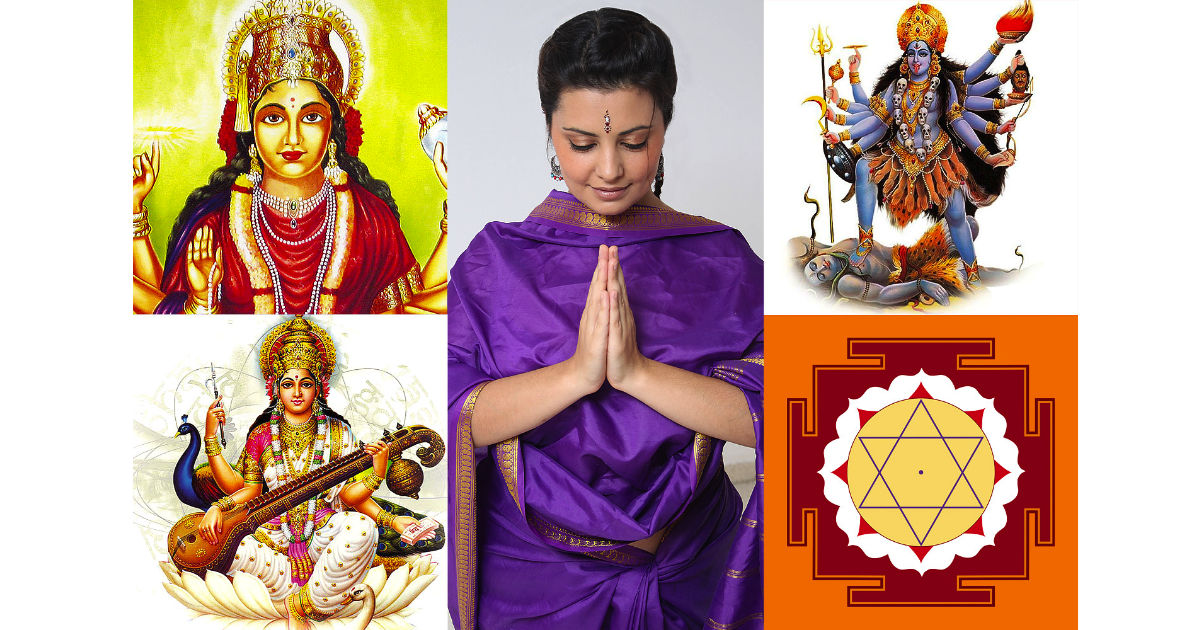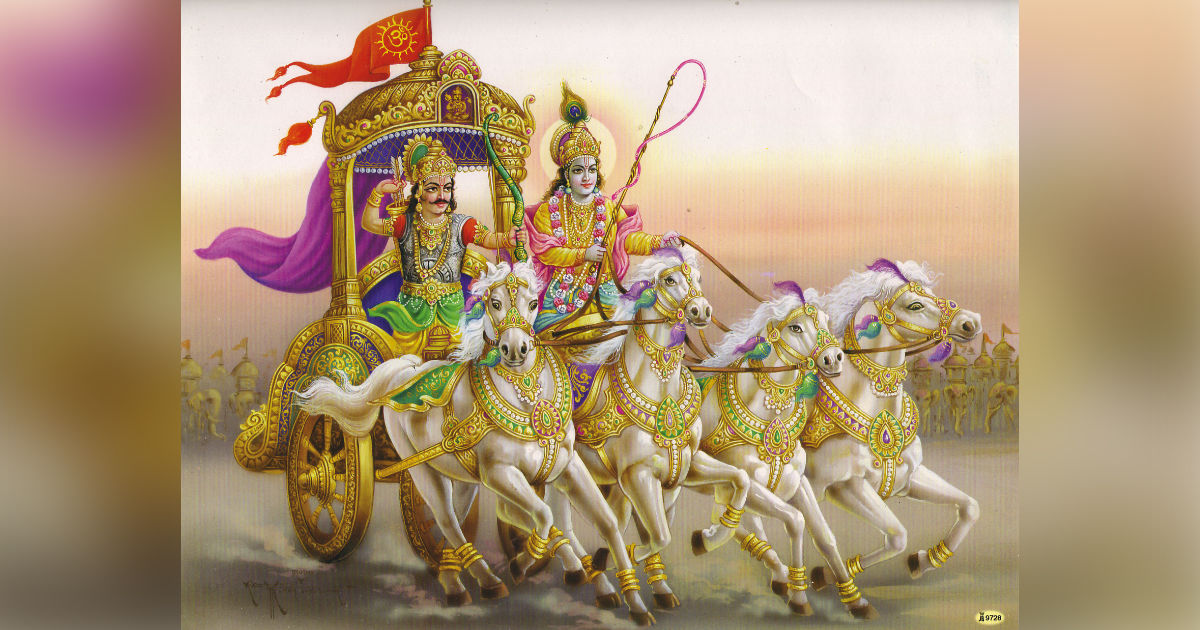The sun requires no torch to make it visible. We do not light a candle to see the sun. – Swami Vivekananda
I can feel a sunshine stealing into my soul and making it all summer, and every thorn a rose. – Emily Dickinson
Tag Archives: Upanishad
947 – Who are Shaktas?
A Shakta is a devotee of the Mother Goddess and his/her prayer can be described like this verse:
May all my idle talk be your japa, sound divine,
May all my gestures be your mudras,
May all my steps be around your seat,
May all my lying down be your pranam,
May all your oblations be my only food,
And may all acts of mine be in joy for you.
Extracted from a hymn dedicated to Tripura Sundari from Saundarya Lahiri. Continue reading
923 – Remembrances about Fathers
Padma Purana states, “Sarvedevmayh Pita”—
father is the embodiment of all devatas, gods.
Hindu Scriptures state:
Pita dharmah, pita, swargah, pita hi parman tapah,
Pitr preetmpanne preeyant sarva devta. Continue reading
897 – Examine your heart
There is a light that shines beyond all things on earth, beyond us all, beyond the heavens, beyond the highest, the very highest heavens. This is the light that shines in your heart. – Chandogya Upanishad
Happiness = None of desires fulfilled – None of desires harbored. Continue reading
844 – My True Heart
Feel more sense more, let your heart function. The intelligence of the heart creates poetry in your life, gives dance to your steps, makes your life a joy… a festivity, a laughter… It makes you capable of love, of sharing. That is true life. – Osho
839 – Sacred Space
Space verily is greater than radiance.
For in space are the sun and moon,
Lightning, stars and fire.
Through space one calls,
Through space one hears
Through space one replies
In space one delights
Or does not delight…
Meditate on space.That which is Brahman is also the space outside the body.
That which is the space outside the body is also inside the body.
And that which is the space inside the body is also the space within the heart.
That treasure within the heart is full and unchanging.
He who knows this is always full and not subject to change.
720 – Who are we?
702 – Are we all equal?
Women, men and non-binary. I am addressing all of you, dear ones. What images do we have of ourselves? The image of men has not changed at all. They can be dressed in fine clothes with gold fountain pens in their pockets and brief cases made of the finest fabrics. Women and non-binary are the ones, whose image keeps changing. Continue reading
659 – The clever orchid
Belief, faith and hope, which order should we follow?
Before I write about these three words which rule us, I want to share with you a truthful tale about the orchids. My dear ones, you all have observed the beauty of the orchid. It flowers and then gives us so much joy with its beauty. They are mono symmetrical; this means that both halves of the flower mirror each other. The orchid flower is thief, liar and cheat. Continue reading
648 – The light of Brahman
The sun shines not there, nor the moon and the stars, nor these lightnings, not to speak of this fire. When He shines, everything shines after Him; All this is illumined by his radiance. – Mundaka Upanishad. Verse 2.2.10.
639 – Meditations on Earth
May I feel the peace existing in the waters, medicinal herbs and trees of nature.
I meditate on the peace which pervades the Aapah (waters), Oshadh (herbs) and Vanaspati (trees).
Om Dyauha Shanti – Shanti Mantra of the Upanishad. Continue reading
631 – What faith one belongs to
Why does one have to explain?
The Same God
Now there are varieties of gifts, the same Spirit; and there are varieties of service, but the same Lord: and there are varieties of working, but it is the same God who inspires them all in everyone. To each is given the manifestation of the Spirit for the common God.
1 Corinthians 12. 4-7 Continue reading
530 – Self-Liberation
Three extraordinary women and their narratives. Jabala, Maitreyi and Shandili have been written before the Christian Era (BCE). My dear ones when I read these legends, I was so pleased that I felt that I must share these stories. Continue reading
465 – Prana, our subtle breath
Having controlled the Prana and Apana, during Kumbhaka (breath retention), with the gaze fixed steadily at the tip of the nose, performing shanmukh mudra with the fingers of both hands, the mind merge itself in the sound of pranava, Aum. – Upanishads.
Shanmukh mudra is practiced when one closes the ears with the thumbs, the eyes with the index fingers, the nostrils with middle fingers, and place the little finger below the lips. Release the pressure of the middle fingers and open the nostrils. Inhale slowly and deeply using full yogic breathing. At the end of the inhalation, close the nostrils with the middle fingers and practice Kumbhaka (holding breath). Hold breath for as long as possible. Release the pressure of the middle finger and slowly exhale.
What are the Upanishads saying?
Through one’s breath awareness, one is able to control inhalation and exhalation. When this is accomplished, one is able to rid oneself of negativity, doubts and fears. The outcome is one’s thoughts are no longer the rulers of one’s mind.
The mind, when it is free from thoughts, desire and motion, merges in the supreme Brahman. This state is Samadhi. – Upanishads.
The year is ending and what is the resolution one can make? Balance one’s prana and to do that practice Samvrit Pranayama. Inhale to the count of five, hold the breath to the count of five, exhale to the count of five and hold the breath outside to the count of five. Practice 27 times with the mantra So Ham, Aum or your personal mantra. Remain on the spiritual path.
Aim Hrim Klim
464 – The flame of the lamp
Is it steady or is it wavering? When one meditates with a lighted lamp, it plays a lot of games with one. Sometimes the light whooshes and wavers from side to side, or it consumes the wick. Often one keeps lighting it and it does not light. Continue reading















